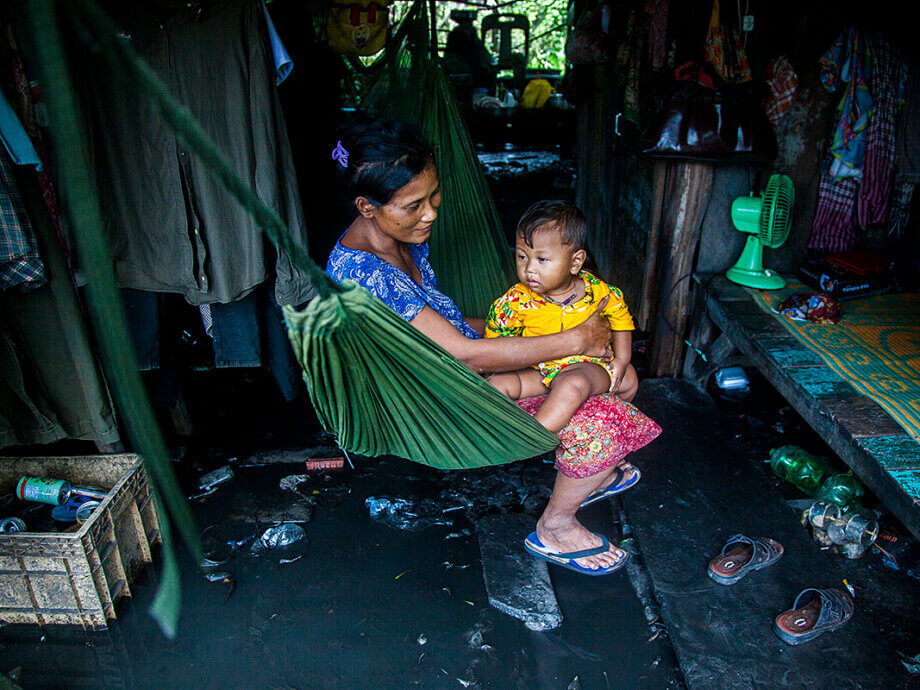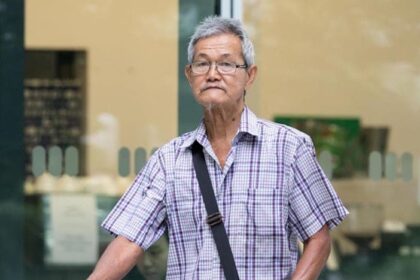Cambodia’s New Social Protection Policy for Pregnant Inmates: An Overview
The Cambodian government has introduced a landmark policy to provide financial support to incarcerated women who are pregnant or have children under the age of two living with them in prison. This initiative, formalized by a sub-decree in June 2024, marks a significant step in expanding the country’s social protection system to some of its most vulnerable citizens. The program aims to address the health, nutritional, and developmental needs of both mothers and their young children during and after incarceration, aligning with broader efforts to improve maternal and child welfare across Cambodia.
- Cambodia’s New Social Protection Policy for Pregnant Inmates: An Overview
- How the Financial Support Program Works
- Eligibility and Enrollment: Who Qualifies?
- Why This Policy Matters: Addressing Vulnerability in Prisons
- Comparing Benefits: Inmates and the Broader Population
- Implementation Challenges and Calls for Further Reform
- Broader Context: Cambodia’s Expanding Social Protection System
- Voices from the Field: Impact and Perspectives
- In Summary
With over 57,000 inmates nationwide, including approximately 3,500 women, the policy is expected to impact dozens of pregnant inmates and over a hundred children currently living in prison with their mothers. The program is funded by the National Social Assistance Fund (NSAF) and implemented in cooperation with the Ministry of Interior, the General Department of Prisons, the Ministry of Health, and other relevant government bodies.
How the Financial Support Program Works
The new policy provides structured cash assistance to pregnant inmates and mothers with children under two, distributed in three main phases: prenatal, childbirth, and postnatal care. The total support for one pregnancy cycle, from conception until the child turns two, can reach up to 1.52 million riel (about $380), with additional provisions for multiple births.
Phase 1: Prenatal Support
During pregnancy, eligible inmates receive 80,000 riel (about $20) for each of up to four antenatal checkups at public health facilities. These checkups are crucial for monitoring the health of both mother and child, identifying potential complications, and providing essential health education. The requirement for checkups at public facilities ensures that the care meets national health standards and is properly documented.
Phase 2: Childbirth Assistance
At the time of delivery, the program provides a one-time payment of 400,000 riel ($100) for a single birth. In cases of multiple births, such as twins or triplets, an additional 200,000 riel ($50) is provided for each extra child. This financial support is intended to help cover the costs associated with childbirth, including medical care, supplies, and immediate postnatal needs.
Phase 3: Postnatal and Child Health Support
After childbirth, mothers are eligible for 80,000 riel ($20) for each of up to ten medical visits. These include three postnatal checkups for the mother and seven vaccination appointments for the child, continuing until the child reaches two years of age. This phase is designed to ensure ongoing health monitoring, timely immunizations, and support for early childhood development.
In cases of miscarriage or stillbirth, the program provides partial support, with payments adjusted based on the stage of pregnancy. If a mother dies during or after childbirth, the remaining benefits are transferred to the child’s legal guardian or caregiver. However, the program does not cover cases of abortion, and assistance is terminated if the mother or child dies before the completion of the support cycle.
Eligibility and Enrollment: Who Qualifies?
To be eligible for the program, pregnant inmates must have either a provisional or final court order for their detention and must have received at least one prenatal checkup at a public health facility. They are also required to present a maternal health book issued by the public health service. If a mother is enrolled, her child is automatically included in the program and must have a child health card. Children whose mothers were not previously enrolled can still qualify if they have the necessary documentation, including the mother’s court order and proof of co-residence in prison.
The program is designed to be inclusive, ensuring that children are not penalized for their mothers’ incarceration. As Chan Narith, Secretary-General of the National Social Protection Council, emphasized,
“Even though women are in prison, their babies and children are not guilty, so we need to protect their rights to receive social protection as well.”
Why This Policy Matters: Addressing Vulnerability in Prisons
Children living in prison with their mothers are among the most vulnerable groups in Cambodian society. Under current law, mothers are allowed to keep their children with them in prison until the child turns three. As of mid-2024, there are over 100 children under three living in Cambodian prisons. These children often face significant challenges, including limited access to nutrition, healthcare, and safe spaces for play and development.
Am Sam Ath, operations director of the human rights group LICADHO, welcomed the new program but highlighted ongoing concerns:
“It’s good to have NSAF support because we see a lot of problems involving pregnant women and children living with their mothers in prison, such as food, hygiene and other health issues which require extra support.”
LICADHO and other advocacy groups have long called for improved conditions for incarcerated mothers and their children, including better nutrition, hygiene, and access to basic necessities like feeding bottles and diapers. The new financial support program is seen as a positive step, but experts stress the need for transparency and ease of registration to ensure that all eligible women and children can benefit.
Comparing Benefits: Inmates and the Broader Population
The financial support provided to pregnant inmates mirrors the benefits available to other vulnerable groups in Cambodia, such as women with ID Poor cards (a government poverty identification system), civil servants, and workers covered by the National Social Security Fund (NSSF). This parity reflects a broader commitment to social equity and the principle that all children, regardless of their circumstances, deserve a healthy start in life.
For example, pregnant workers in the public and private sectors receive similar cash payments for prenatal checkups, childbirth, and postnatal care. The government has spent billions of riel supporting over 700,000 families since the inception of its social protection programs, with the aim of reducing maternal and child mortality, improving nutrition, and promoting early childhood development.
International organizations such as UNICEF and the World Health Organization have praised Cambodia’s progress in expanding maternity rights and social protection, noting that the country now has some of the most advanced maternity benefits in Southeast Asia. These include legal protections for pregnant workers, expanded access to skilled medical care, and community-based support for mothers in rural areas.
Implementation Challenges and Calls for Further Reform
While the new policy is widely welcomed, its implementation faces several challenges. Prisons in Cambodia are often overcrowded, and resources for healthcare, nutrition, and child development are limited. Advocacy groups have raised concerns about the practicalities of delivering cash assistance in the prison environment, ensuring that funds are used for their intended purpose, and providing adequate support for mothers and children with special needs.
There are also ongoing discussions within the government about alternative measures for pregnant women and mothers with young children who are incarcerated. Some officials and rights groups have suggested that, where possible, non-serious offenders should be allowed to serve their sentences outside of prison or be granted bail, to avoid exposing young children to the harsh conditions of incarceration.
Kim Santepheap, Secretary of State at the Ministry of Justice, has led meetings to explore more humane solutions for this group, emphasizing the need to align with national and international human rights principles. However, as of mid-2024, no definitive policy changes have been announced regarding alternatives to imprisonment for pregnant women and mothers with young children.
Broader Context: Cambodia’s Expanding Social Protection System
The introduction of financial support for pregnant inmates is part of a broader expansion of Cambodia’s social protection system. Since the adoption of the National Social Protection Policy Framework (2016–2025), the government has significantly increased its investment in programs aimed at reducing poverty, improving health outcomes, and promoting social inclusion.
The National Social Protection Council (NSPC) and the NSAF have played central roles in designing and implementing these programs, which now cover millions of Cambodians. The government’s commitment to expanding coverage to previously excluded groups, such as incarcerated women and policewomen, reflects a growing recognition of the importance of universal social protection in achieving sustainable development goals.
Minister of Economy and Finance Aun Pornmoniroth has called for stronger public trust in the system and urged ministries to enhance service delivery. The government’s efforts have been supported by international partners, including UNICEF, WHO, and various NGOs, who provide technical assistance, funding, and advocacy for maternal and child health.
Voices from the Field: Impact and Perspectives
For many women in prison, the new financial support program offers hope for better health and well-being for themselves and their children. While direct testimonials from inmates are rare due to the controlled environment, officials and advocates report that the program is already making a difference in access to healthcare and essential supplies.
Chan SreyNa, a mother who benefited from the government’s assistance program outside of prison, shared her experience:
“This financial support from the government is very helpful for health checkups, hospital fees and my baby’s checkups.”
Advocates stress that similar benefits for incarcerated women can help mitigate the disadvantages faced by children born and raised in prison, supporting their physical and mental development during the critical first 1,000 days of life.
In Summary
- Cambodia has launched a new financial support program for pregnant inmates and mothers with children under two living in prison, funded by the National Social Assistance Fund.
- The program provides structured cash assistance for prenatal checkups, childbirth, and postnatal care, totaling up to 1.52 million riel per pregnancy cycle.
- Eligibility requires a court order for detention and documented health checkups at public facilities; children are automatically enrolled if their mothers participate.
- The policy aims to address the health, nutrition, and developmental needs of mothers and children in prison, aligning with broader social protection reforms.
- Advocacy groups welcome the initiative but call for improved prison conditions, transparency, and consideration of alternatives to incarceration for non-serious offenders.
- The program reflects Cambodia’s commitment to expanding social protection and ensuring that all children, regardless of circumstance, have access to essential care and support.












